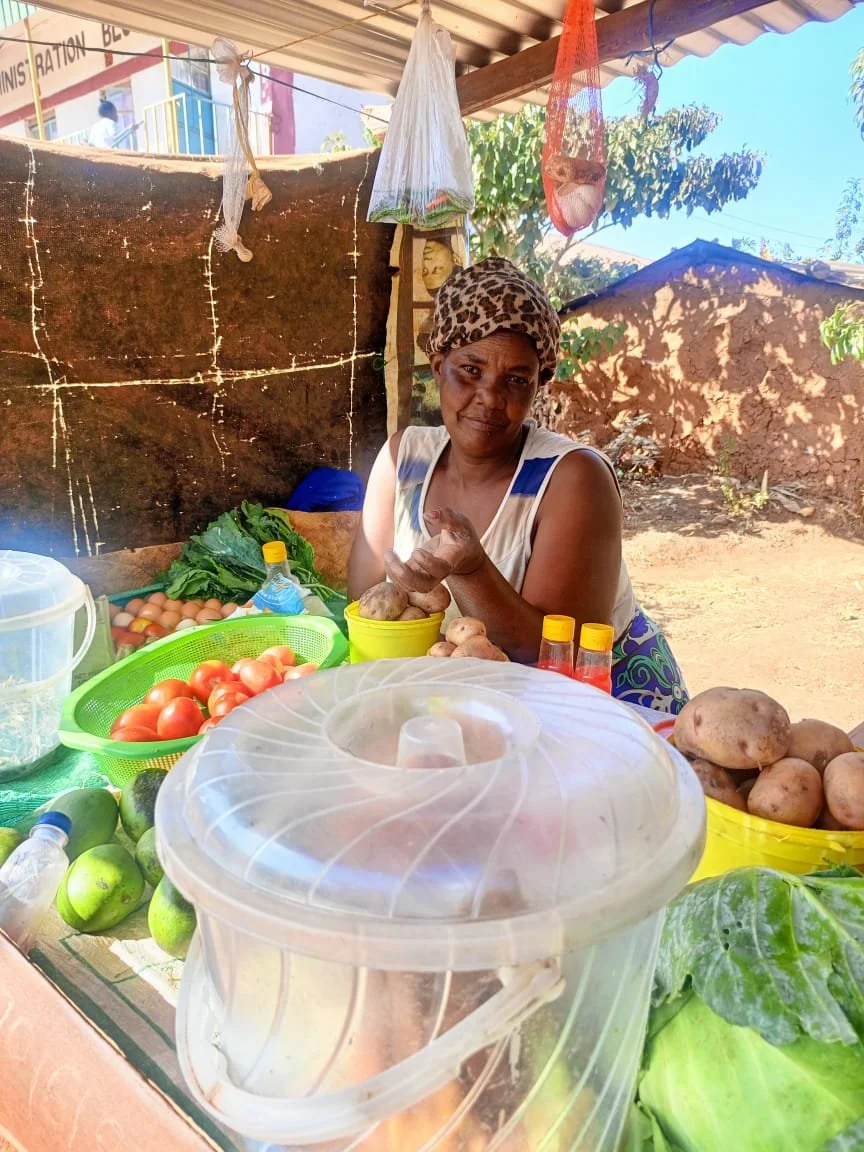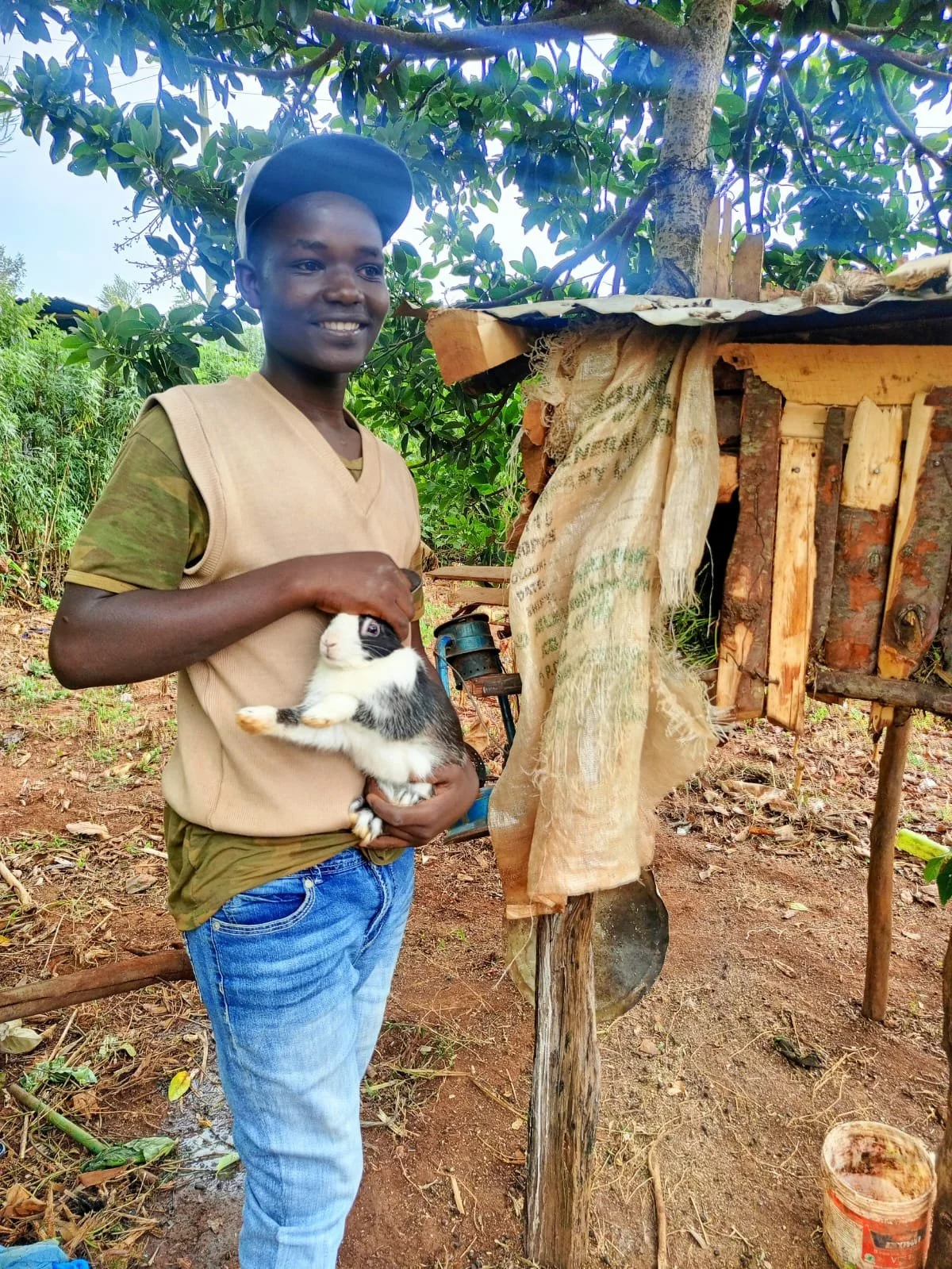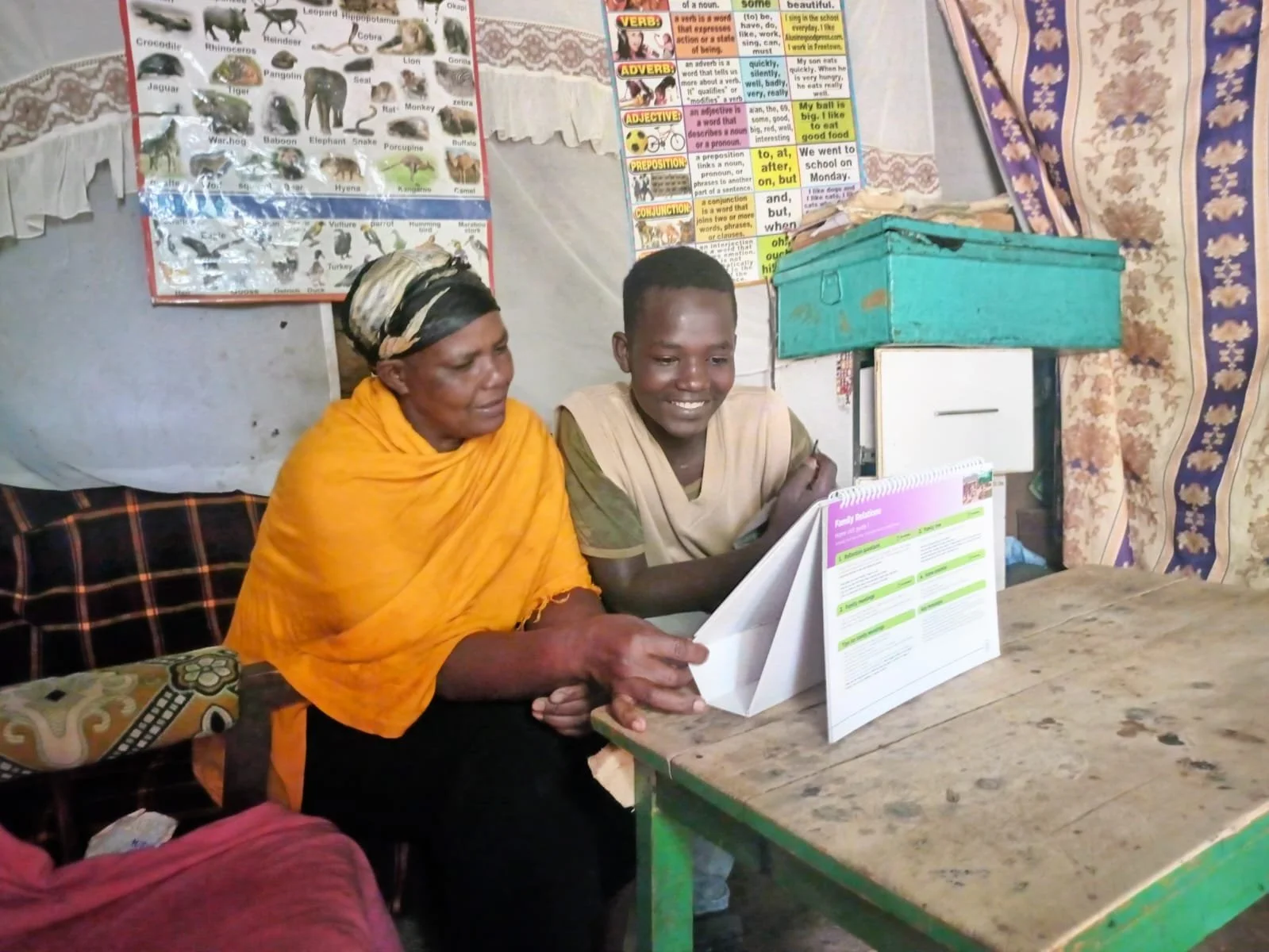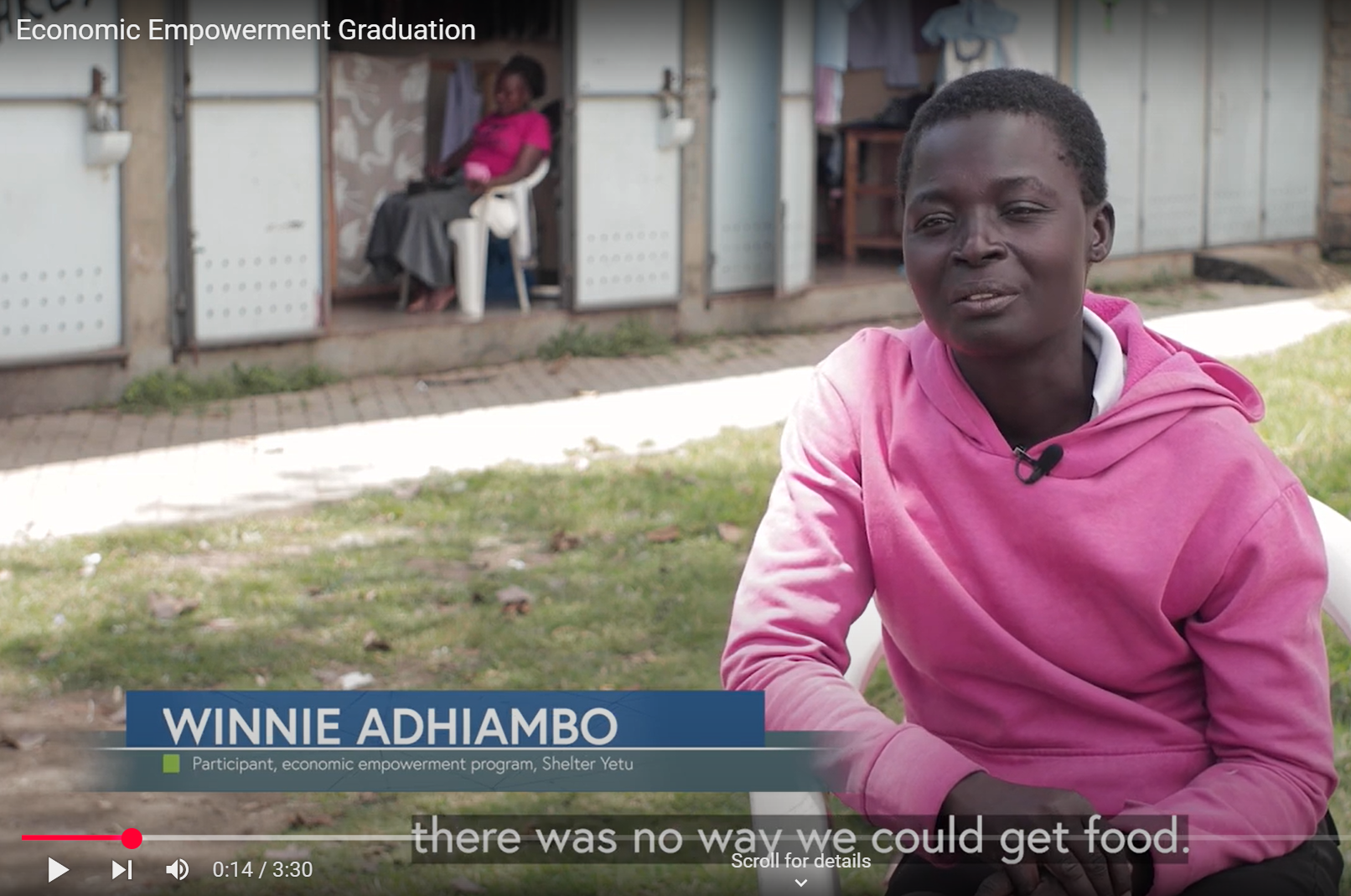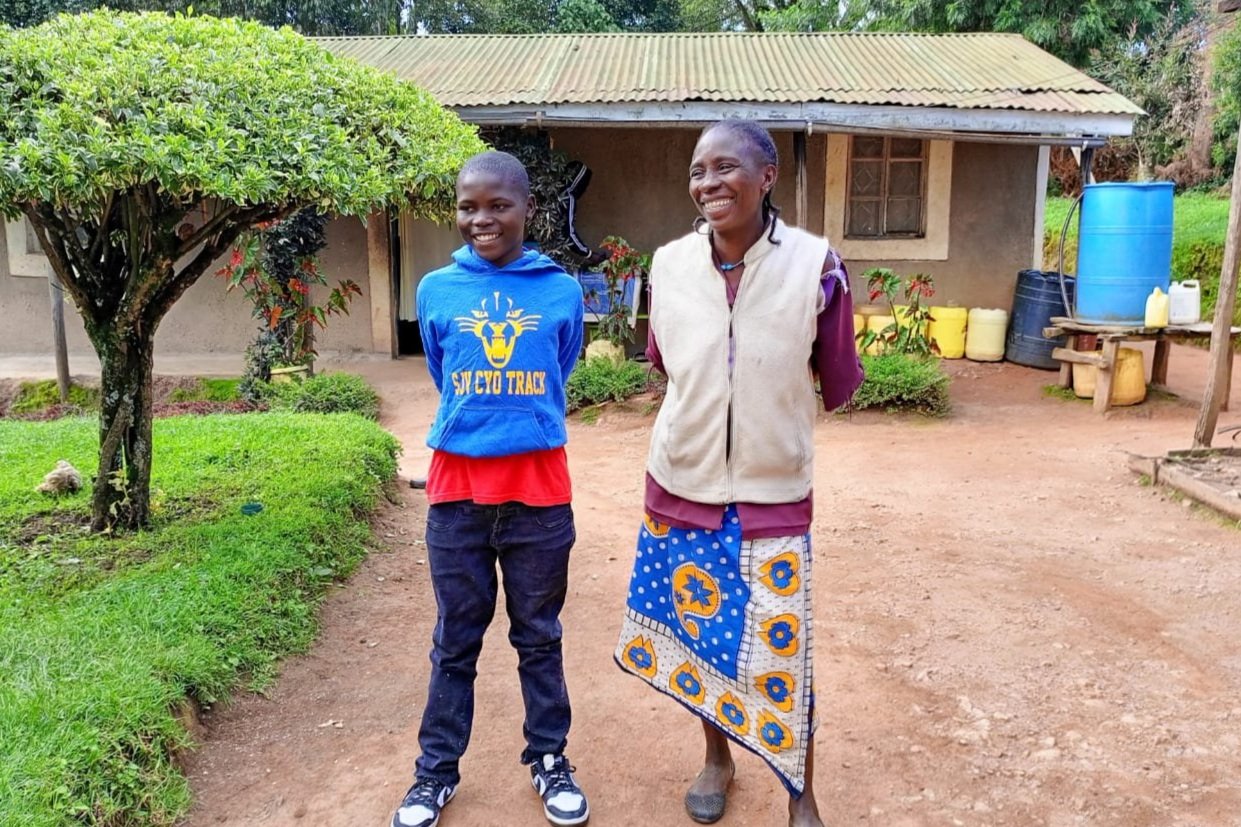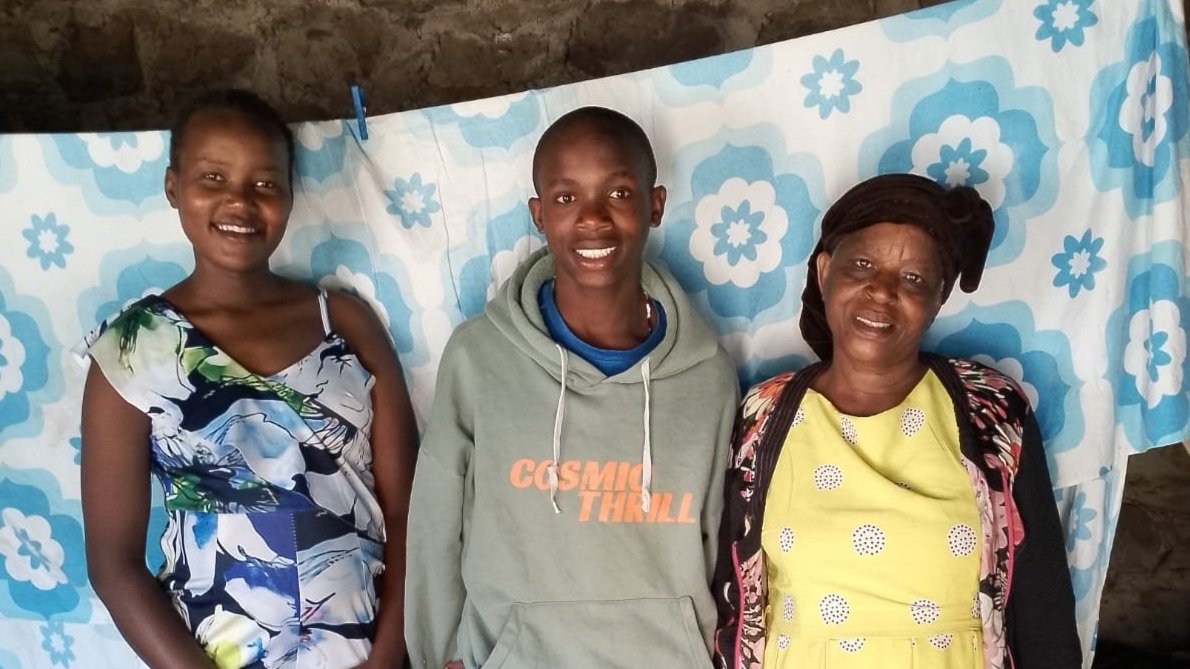Every year since David* was rescued from the street and reunited with his family. The family was happy to be reunited. They even engaged in regular lessons on Family Strengthening with Shelter Yetu staff on topics such as healthy communication and safety.
Thanks to Shelter Yetu supporters providing school scholarships, David is in secondary school (high school). This pricey privilege is not possible for many Kenyan children.
After a follow-up visit, a social worker made these notes:
“I met him at home with all his siblings. The family is grateful for the support they received by Shelter in helping him get enrolled in school. The family is proud of him, he is well disciplined both at home and school…
““...The only challenge he has at home is missing some meals.””
This was a consistent note in family updates, with David noting hunger made it hard to study. That’s why this family was invited into Shelter Yetu’s Family Empowerment Program.
This year, with seed money from our supporters, our business coaches helped mom launch her produce kiosk. Business is going well with encouragement from her Shelter Yetu business mentor.
Soon, she’ll be able to pay school fees for David and his siblings by herself—with dignity and independence. Special thanks to all our supporters who are sponsoring families like this one and helping change the trajectory of their lives for generations.
*Shared with permission, but name changed to protect privacy.


